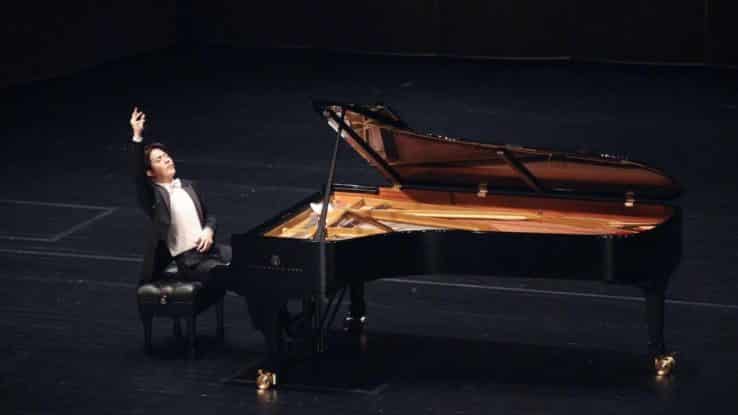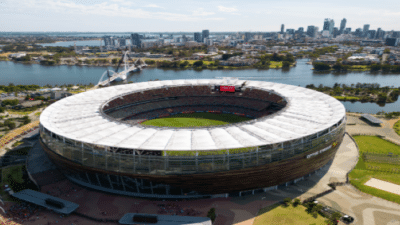Music

Interview
Chinese classical pianist Yundi Li chats Chopin, rituals, and live performance
We chat with Chinese classical pianist Yundi Li ahead of his Australian tour in February 2020.
Internationally-acclaimed pianist Yundi Li was propelled onto the international stage when, at just 18 years old, he became the youngest ever winner in the history of the Chopin International Piano Competition.
Since then he has become regarded as a leading exponent of Chopin’s music, taking his classics to stages around the globe and injecting his own flair and emotion into every piece.
Throughout his career, he has performed on world-renowned stages including New York’s Carnegie Hall, London’s Royal Festival Hall, Musikverein Vienna, Alte Opera Frankfurt, and Beijing’s National Centre for Performing Arts. He has also collaborated and performed with the likes of the Berliner Philharmoniker and Seiji Ozawa, Leipzig Gewandhausorchester and Riccardo Chailly, Philharmonia Orchestra and Andrew Davis, the Vienna Philharmonic, and Washington’s National Symphony Orchestra.
In 2018, Li made his most recent trip to Australia, performing with local orchestras to sold-out crowds in Brisbane, Sydney, and Melbourne. Now he is returning to our shores to explore the works of three greats – Chopin, Schubert, and Rachmaninoff.
For anyone who hasn’t seen you perform before, what can we expect from a Yundi live performance? Each pianist will have his own style and different understandings and interpretations of the same work. I want to bring to the audience these pieces of a sonata that I understand. At the same time, as a Chinese person, I will bring classical music works performed by Chinese people to the Australian audience. I hope to make audiences feel different and bring them surprises. I think this is also a cultural exchange. I convey the spirit of Chinese traditional culture to overseas audiences and at the same time, I will also show the charm of Western classical music to Chinese audiences.
What are your favourite memories from your previous Australian tour? The last Australian tour was very memorable because it was the first time I’d visited Australia. The last time I was playing a solo concerto tour, I worked with a local symphony orchestra in Australia. The audiences in Australia are very enthusiastic. I played the selection of our Chinese work ‘Yellow River’ when I was at the Sydney Opera House. I am very happy that the audience liked it.
Anyone familiar with your work would know your connection with Chopin’s work. How has your connection and approach evolved over time? From my childhood until now, Chopin’s work and Chopin’s spirit has influenced me. Of course, as my growth and life experience continue to flourish, the relationship between myself and Chopin will also change. The delicate and complex feelings in Chopin’s works, the deep attachment to the motherland and the people, and his patriotism are all close to me. My enthusiasm makes me understand him more thoroughly as I mature. This understanding helps me better interpret Chopin’s work.
Tell us about your relationship with the work of Schubert and Rachmaninoff. These two are also composers that I really appreciate. Before I play their works, I will try to understand their life experiences as well as the historical background of the time. When I play the works of Schubert and Rachmaninoff, I have empathy with them. I feel that the emotional resonance between the pianist and the composer across time and space is very wonderful and romantic.
You have been performing professionally now for more than two decades, what is it that you still love most about performing live? The only performances on the spot were me, the piano, and the audience. The only way I communicated with the audience was the sound of the piano. We listened together, felt together, and breathed together. I really enjoy feeling that we don’t need a language to understand each other. The audience in the big concert hall is your listener. They can perceive your emotional changes from the melody. It is really wonderful.
Now, almost 20 years on, how does it feel looking back on your International Chopin Piano Competition and the fame that quickly followed? There is no doubt that the Chopin International Piano Competition is a very important node of my career, but in fact my thoughts were very simple. I am very proud to receive this honour as a Chinese person. Great joy and national pride come to my mind, and it also strengthened the idea of becoming a professional pianist.
How would you describe your style of playing and how has it grown or changed over time? Playing a piece of music is like telling a story. I will tell the story like a poem. In fact, every performance of my show will have some subtle changes. My emotional state will cause me to have different interpretations of the music, so every performance is unrepeatable and unique to me.
What does your pre-show routine or ritual look like? The process before my performance is actually quite simple. The most important thing is to ensure I have had enough rest. Then I will have three to four hours of rehearsal to adapt to the piano, sound, light and temperature of the theatre. Before going on stage, I eat some chocolate to replenish energy, and I quietly adjust my breathing and heartbeat to the performance state.
Tell us about your 100-concert recital tour? At present, China’s classical music culture is in a rapid development stage. More and more Chinese young friends are very fond of classical music, including some audiences in small and medium-sized cities. I hope to bring classical music to more cities in China. Even the classical fans of small cities have the opportunity to hear live concerts in their own cities.
Yundi Li will bring his Sonata World Tour to Palais Theatre Melbourne on Sunday 2 February, Perth Concert Hall on Tuesday 4 February, and State Theatre Sydney on Saturday 8 February. Tickets are on sale via Ticketmaster.com.au.









